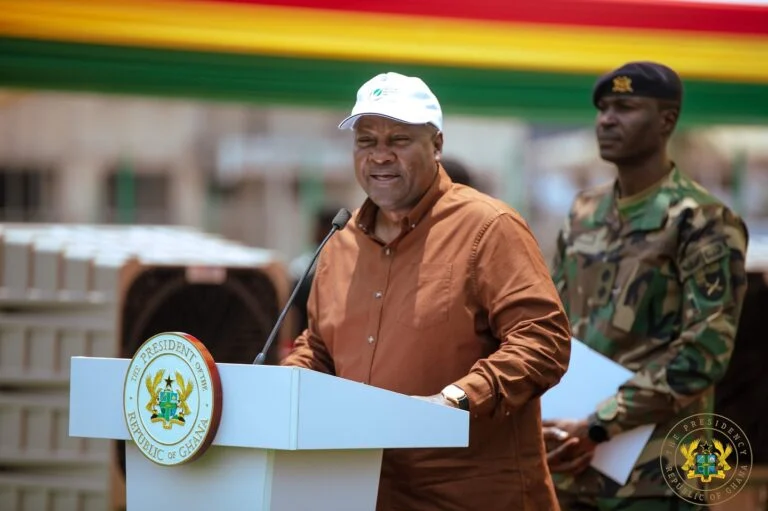Play Politics, Heal the Sick, Raise the Dead, Cast Out Demons, Preach the Gospel

By Bamidele Atoyebi
The church can no longer afford to sit on the sidelines of governance. Christian leaders particularly those in education and discipleship must begin to integrate political leadership and mentorship into their teachings. For too long, politics has been treated as unclean, yet the truth is simple: if the righteous retreat, the unrighteous will rule.
The Special Olympics motto captures the courage Christians must bring to nation-building: “Let me win. But if I cannot win, let me be brave in the attempt.” Believers cannot afford to keep shrinking back from politics. We must be brave enough to enter the arena, bringing faith, integrity, and competence into leadership.
It is not enough to preach salvation while ignoring how society is governed. Insecurity, corruption, poverty, and unemployment cannot be prayed away; they require practical solutions and courageous decision-making. Spirit-filled Christians must be prepared to provide answers within hours, not years. Governance, economy, and innovation are not secular distractions; they are platforms for kingdom influence.
What many Christians do not realize is that every anointing is not given for sitting idle or for pulpit ministry alone. Whether one carries the title of general overseer, pastor, business leader, or political officeholder, the call to preach the gospel remains. Abraham preached through his obedience and wealth, David through his governance, Joseph through his economic wisdom, and Daniel through his service in foreign palaces. In essence, every believer is called into the ministry of reconciliation, regardless of career or title. The gifts God has given wisdom, knowledge, understanding, and the Holy Spirit are meant to be used for the betterment of society and the advancement of God’s kingdom. Our country is crying out for men and women of conviction whose words carry weight, whose wisdom is second to none, and who can pause in prayer before returning with solutions that transform organizations, communities, and even nations. Being in governance does not stop one from preaching the gospel; it multiplies the platform for doing so. Political service and spiritual devotion are not mutually exclusive they reinforce each other.
The Bible itself is filled with leaders who combined faith with governance. Noah built the ark with divine instruction, ensuring humanity’s survival. Moses oversaw the building of the tabernacle and led Israel as a nation, showing that leadership involves both spiritual depth and administrative competence. Joseph designed an economic survival plan that saved Egypt and surrounding nations from famine, proving that sound policy backed by wisdom can avert disaster. Daniel stabilized political crises in Babylon and advised kings with integrity, showing that prayer and policy can work hand in hand. Nehemiah governed and rebuilt Jerusalem’s walls with strategy and prayer, a balance of faith and practical leadership that remains instructive today.
Among these figures, Esther stands out as a striking example of courage and influence. A Jewish orphan turned queen, she could have remained silent in the palace while her people faced annihilation. Instead, she risked her life by approaching the king uninvited, turning the tide of history and saving an entire nation. Esther’s story is a reminder that political positions are not for comfort but for service and sacrifice.
Deborah too broke boundaries in her time. As both prophetess and judge of Israel, she led with wisdom, fairness, and boldness. When military generals hesitated, she stepped forward to lead Israel into battle and secured victory. Her leadership shows that women of faith are not excluded from governance; they are vital to it. Deborah demonstrates that when spiritual authority meets courage, even the most complex national challenges can be overcome.
Solomon represents yet another dimension of leadership. His reign was marked by wisdom, diplomacy, and prosperity. His ability to deliver justice in the famous case of the two mothers and one child highlighted not only discernment but also the importance of fairness in governance. Solomon expanded Israel’s influence through strategic alliances and infrastructural development, showing that godly wisdom can guide politics, economics, and international relations.
The pattern continues throughout Scripture. Abraham negotiated with kings, Isaac and Jacob prospered in business, Job held civic authority, and David governed with vision. None of these figures separated faith from leadership. They proved that godliness and governance are not enemies but allies.
History also shows that faith can transform politics. William Wilberforce, driven by Christian conviction, led the campaign to abolish the slave trade in Britain. Martin Luther King Jr., a preacher, spearheaded the American civil rights movement, reshaping history through faith in action. Desmond Tutu used the pulpit to challenge apartheid in South Africa with moral clarity. Even leaders like Nelson Mandela, though not a pastor, were deeply influenced by Christian ethics of justice and reconciliation. These examples prove that when believers engage with courage and integrity, nations can be reshaped.
The time has come for the church to stop retreating. Our world groans under insecurity, economic hardship, and political instability. Solutions will not come from empty rhetoric but from Christians who combine the wisdom of the Spirit with practical competence. Churches must go beyond pulpit sermons to build leadership institutes, civic education programs, policy think-tanks, and mentorship platforms that prepare believers for governance. It is not enough to pray for change; we must raise the people who will bring it.
If Noah could build an ark, Joseph could rescue an economy, Esther could save a nation, Deborah could lead in war, and Solomon could govern with wisdom, then surely the modern church can raise men and women who will lead nations into a brighter future. Our calling is not only to pray in the closet but also to govern in the open.
Bamidele is philanthropist, criminologist, social worker, maritime administrator, founder of BAT school of politics and policies and convener of BAT Ideological Group. Wrote in from Abuja









